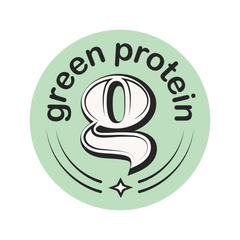
The Benefits of Incorporating Protein Powder into Your Diet
Protein powders have surged in popularity in recent years, moving beyond the realms of bodybuilding and sports nutrition to become a staple in many people's daily diets. They're convenient, versatile, and can help meet increased protein needs. This article will explore the benefits of incorporating protein powder into your diet and how it can support various aspects of health and well-being.The Importance of Protein:
Protein is a critical macronutrient that plays various roles in the body, including building and repairing tissues, making enzymes and hormones, and supporting immune function. It's also essential for the growth and maintenance of muscle mass. The recommended dietary allowance (RDA) for protein varies depending on age, sex, and activity level, but for many adults, it's around 46-56 grams per day.
Benefits of Protein Powder:
Muscle Growth and Recovery: Protein powders, particularly those containing whey or casein, provide a rich source of branched-chain amino acids (BCAAs) that promote muscle protein synthesis, supporting muscle growth and recovery after exercise.
Weight Management: Protein has a high satiety value, meaning it can help you feel fuller for longer, potentially aiding in weight management by reducing overall calorie intake.
Convenience: Protein powders are a convenient way to increase protein intake, especially for those with a busy lifestyle. They can be easily added to smoothies, shakes, or even baked goods.
Nutrient Boost: Some protein powders come fortified with vitamins and minerals, providing an additional nutrient boost. This can be particularly beneficial for those following restrictive diets or with increased nutritional needs.
Dietary Flexibility: With various protein sources available, including plant-based options, protein powders can suit different dietary preferences and restrictions, including vegan, vegetarian, and lactose-free diets.
Considerations When Using Protein Powder:
While protein powders offer several benefits, it's essential to remember that they should supplement a balanced, varied diet, not replace whole foods. Whole foods not only provide protein but also offer a wide range of other essential nutrients that protein powders may lack.
Additionally, not all protein powders are created equal. Some may contain added sugars, artificial additives, or even contaminants. Therefore, always check the ingredients list and choose a product that aligns with your dietary needs and preferences.






